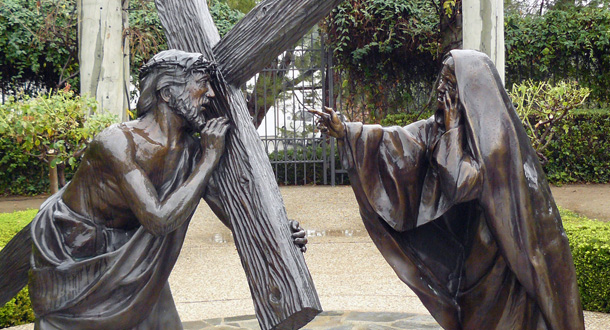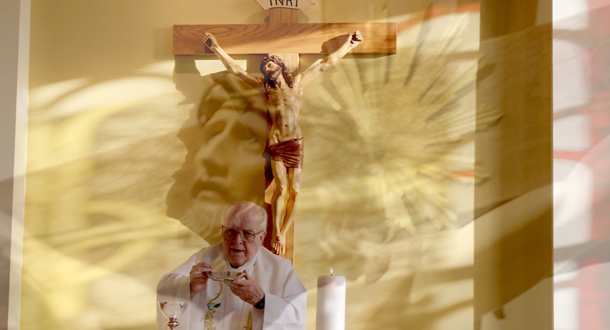 Scripture:
Scripture:
Reflection:
This passage is one of the most touching sections in Luke’s Gospel. Jesus and his disciples are on their way to Jerusalem. They are passing between Samaria and Galilee. Subtly Luke is saying that suffering is the great leveler. Samaritans and Galileans are thrown together by their sufferings. This passage tells the story of the cure of these Ten persons, who were afflicted with leprosy. Nine are Israelites and one is a Samaritan. After being cured all ten are told to go to the high priest who verifies that the recipients have been cured and are welcomed to return to their families, friends, and society. It is a surprise that only one of the ten returns to give thanks to Jesus for the cure. It is ironic also that the only one to return was a Samaritan, a non-Jew. Gratitude is held in high esteem in Judaism. It is held as a basic ethical attitude. Gratitude or thanks is a source of vitality In Judaism and Christianity.
In Luke the one who has faith is able to be cured. The shepherds (2:20) return home and praise God. The paralyzed man who’s friends have faith is healed . He got up took his mat returned home and thanked God (5:25). The widow of Naim’s son is brought back to life. The crowds thanked God (7:16). The woman who suffered for eighteen years is healed. She stands straight and thanked God. (23:23). The man afflicted with blindness believed Jesus was the “Son of David.” He followed Jesus and thanked God. (18:43). The Centurion at the foot of the Cross witnessed Jesus’ death and resurrection, thanked God (23:47).
Several years ago there was a periodical on the spirituality of priests. In this journal there was an article about the anger of priests. The editor of the article has been publishing this periodical for several years. In the issue following on the article on anger the editor said that this article received more responses than all previous publications completely. He went on to say that he wanted to remind the priests who read this article that the opposite of anger is “Gratitude!”
Each of us is a song sung by God. Our task is to discover that song and sing it in harmony with God. Someone mentioned that a friend is one who hears the song in my heart and hums it to me when my memory fails. We should be grateful for such friends
Fr. Ken O’Malley, C.P., is the local superior at Holy Name Passionist Community in Houston, Texas.

 Scripture:
Scripture: Scripture:
Scripture: Scripture:
Scripture: Scripture:
Scripture: Scripture:
Scripture: Scripture:
Scripture: Scripture:
Scripture: